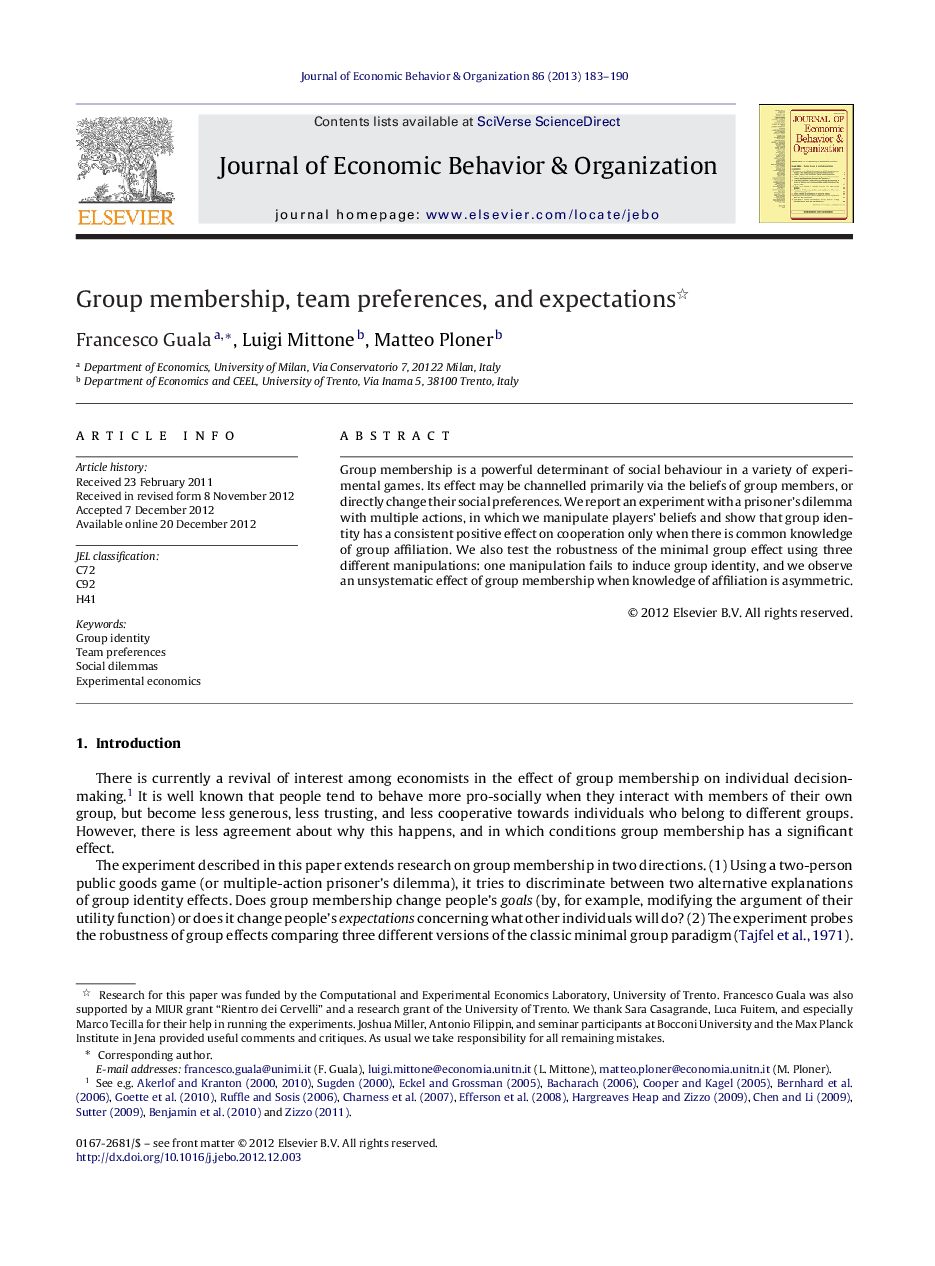| Article ID | Journal | Published Year | Pages | File Type |
|---|---|---|---|---|
| 883669 | Journal of Economic Behavior & Organization | 2013 | 8 Pages |
Group membership is a powerful determinant of social behaviour in a variety of experimental games. Its effect may be channelled primarily via the beliefs of group members, or directly change their social preferences. We report an experiment with a prisoner's dilemma with multiple actions, in which we manipulate players’ beliefs and show that group identity has a consistent positive effect on cooperation only when there is common knowledge of group affiliation. We also test the robustness of the minimal group effect using three different manipulations: one manipulation fails to induce group identity, and we observe an unsystematic effect of group membership when knowledge of affiliation is asymmetric.
► Investigates empirically the role of expectations in group identity effects. ► Manipulates beliefs by providing asymmetric knowledge of group affiliation. ► Shows that group framing requires common knowledge of group affiliation. ► Group identity influences primarily beliefs rather than preferences. ► Group identity effects are fragile with asymmetric information.
